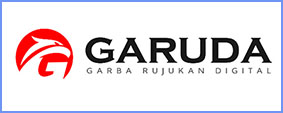INTEGRASI ILMU EKONOMI ISLAM DAN PENDIDIKAN AGAMA ISLAM ERA SOCIETY 5.0
DOI:
https://doi.org/10.36769/ibest.v2i1.327Kata Kunci:
Economics, Islamic Religious Education and Society Era 5.0Abstrak
In the era of Society 5.0 which is marked by the rapid development of digital technology and a shift in the paradigm of society, the integration between economics and Islamic religious education is becoming increasingly relevant and important. This integration provides a strong foundation in facing economic and spiritual challenges amidst rapid social change. Economics is a scientific discipline that studies how people allocate limited resources to meet their needs and wants. On the other hand, Islamic religious education emphasizes character building and basic spiritual valuesfor individual Muslims. The combination of these two fields can provide a comprehensive understanding of how to manage resources fairly and sustainably, while still considering spiritual and moral aspects in making economic decisions. The integration of economics and Islamic religious education in the Society 5.0 era can be carried out through an interdisciplinary approach in teaching and research. Islamic religious education can provide an ethical and moral foundation for economic decision-making, while economics provides an analytical framework and instruments for analyzing complex economic phenomena.In addition, this integration can generate innovative thinking in facing global economic challenges. The principles of a just and sustainable economy taught in economics can be applied in the context of Islamic religious values, such as social justice, income distribution and environmental sustainability.By integrating economics and Islamic religious education, we can produce graduates who not only have a strong understanding of economic concepts, but also have moral integrity and spiritual awareness. They will be able to respondto economic challenges by prioritizing the principles of justice, ethics and sustainability, in line with Islamic religious values.In conclusion, the integration of economics and Islamic religious education in the era of Society 5.0 brings great benefits in dealing with the complexity of economic and spiritual challenges. Through an interdisciplinary approach, we can develop a holistic understanding of a just and sustainable economy, which is in harmony with Islamic religious principles. Thus, this integration can become the basis for building a more harmonious and sustainable society in the era of Society 5.0
Referensi
Chikmawati, Zulifah. “Peran BUMDes dalam meningkatkan pertumbuhan ekonomi pedesaan melalui penguatan sumber daya manusia.” Jurnal Istiqro 5, no. 1 (2019): 101–13.
El-Karanshawy, Dr Hatem A, Dr Azmi Omar, Dr Tariqullah Khan, Dr Salman Syed Ali, Dr Hylmun Izhar, Wijdan Tariq, Karim Ginena, dan Bahnaz Al Quradaghi. “Islamic Economics: Theory, Policy and Social Justice,” t.t.
Fitriyah, Lailatul. “TINJAUAN HUKUM ISLAM TERHADAP PRAKTIK PEMBERIAN UPAH BURUH PEMELIHARA SAPI DI DESA TENGGEER KULON KAB. TUBAN.” Jurnal Ekonomika dan Bisnis Islam 5, no. 2 (2022): 95–105.
Hamid, Abdul, dan Muhammad Kamal Zubair. “Implementasi Etika Islam Dalam Pemasaran Produk Bank Syariah.” BALANCA: Jurnal Ekonomi dan Bisnis Islam 1, no. 1 (2019): 16–34.
HANIFAH, ISMAH. “PANDANGAN ISLAM TERHADAP MANUSIA DAN IMPLIKASINYA TERHADAP PENDIDIKAN ISLAM (Studi Analisis Buku Ilmu Pendidikan Islam Karya Prof. DR. H. Ramayulis).” PhD Thesis, UNISNU JEPARA, 2018.
Jono, Muhamad, Firman Firman, dan Rusdinal Rusdinal. “PERANAN PROF. DR. H. RAMAYULIS DALAM PENGEMBANGAN PENDIDIKAN ISLAM DI SUMATERA BARAT 1945-2015.” Jurnal Pendidikan Tambusai 3, no. 3 (2019): 1380–84.
Mardiah, Mardiah. “Nusyūz Dalam Surat An Nisa Ayat 34 (Tinjauan Analisis Keadilan Gender).” Al Qalam: Jurnal Ilmiah Keagamaan Dan Kemasyarakatan 16, no. 3 (2022): 896–914.
M.Pd.I, Dr Zubairi. PENDIDIKAN KARAKTER PESERTA DIDIK DALAM PENDIDIKAN AGAMA ISLAM. Penerbit Adab, t.t.
———. PROFESIONALISME GURU PENDIDIKAN AGAMA ISLAM ERA REVOLUSI 4.0. Penerbit Adab, t.t.
Muzakki, Zubairi. “PERILAKU AKHLAQ DALAM PENDIDIKAN ISLAM.” Jurnal Asy-Syukriyyah 13, no. 1 (2014): 87–127.
Muzakki, Zubairi, dan Nurdin Nurdin. “Formation of Student Character in Islamic Religious Education.” EDUKASIA: Jurnal Pendidikan Dan Pembelajaran 3, no. 3 (7 Desember 2022): 937–48.
Nursyamsu, Nursyamsu, Fitriarahayu Ningsih, dan Nurdin. “Business Sustainability in the Era of Society 5.0: Optimizing the Utilization of Social Media and Fintech for Muslim Millennial Entrepreneurs.” Iqtishodia: Jurnal Ekonomi Syariah 7, no. 2 (28 September 2022): 21–28. https://doi.org/10.35897/iqtishodia.v7i2.844.
Putri, Aulia. “Memperoleh gelar sarjana hukum pada Fakultas Syariah,” t.t.
Salman, Abdul Matin Bin. “MENJAGA KEBERSAMAAN DI TENGAH KEBERAGAMAN (Telaah Konsep Toleransi dalam Al-Qur’an).” SYAHADAH: Jurnal Ilmu al-Qur’an dan Keislaman 6, no. 1 (2018).
“SOCIETY 5.0 LEADING IN THE BORDERLESS WORLD.pdf.” Diakses 8 Juni 2023. https://repository.uinbanten.ac.id/6246/1/SOCIETY%205.0%20%20LEADING%20IN%20THE%20BORDERLESS%20WORLD.pdf.
“Suharto, U. (2020). Islamic Economic System in the Digital Era: Perspective on Society 5.0. European Journal of Islamic Finance, 14, 1-10. - Recherche Google.” Diakses 8 Juni 2023. https://www.google.com/search?q=Suharto%2C+U.+(2020).+Islamic+Economic+System+in+the+Digital+Era%3A+Perspective+on+Society+5.0.+European+Journal+of+Islamic+Finance%2C+14%2C+1-10.&rlz=1C1SQJL_enID974ID974&oq=Suharto%2C+U.+(2020).+Islamic+Economic+System+in+the+Digital+Era%3A+Perspective+on+Society+5.0.+European+Journal+of+Islamic+Finance%2C+14%2C+1-10.&aqs=chrome..69i57.8455423307j0j15&sourceid=chrome&ie=UTF-8.
Zubairi, M. Pd I. STRATEGI PEMBELAJARAN PENDIDIKAN AGAMA ISLAM. Penerbit Adab, t.t.
Zubairi, Zubairi, Asep Muljawan, dan Nur Illahi. “Nilai-Nilai Pendidikan Islam Dalam Asma’ul Husna (Al-Rahman, Al-Rahiim, Al-Lathiif, Al-Haliim, Al-Syakuur).” TARQIYATUNA: Jurnal Pendidikan Agama Islam dan Madrasah Ibtidaiyah 1, no. 1 (2022): 59–67.
Zubairi, Zubairi, dan Nurdin Nurdin. “The Challenges of Islamic Religious Education in the Industrial Revolution 4.0.” Scaffolding: Jurnal Pendidikan Islam Dan Multikulturalisme 4, no. 3 (23 Desember 2022): 386–96. https://doi.org/10.37680/scaffolding.v4i3.2120.
Zubairi, Zubairi, Nurdin Nurdin, dan Rahmat Solihin. “Islamic Education in the Industrial Revolution 4.0.” Scaffolding: Jurnal Pendidikan Islam Dan Multikulturalisme 4, no. 3 (23 Desember 2022): 359–71. https://doi.org/10.37680/scaffolding.v4i3.2118.
##submission.downloads##
Diterbitkan
Cara Mengutip
Terbitan
Bagian
Lisensi
Hak Cipta (c) 2023 Zubairi Muzakki

Artikel ini berlisensi Creative Commons Attribution 4.0 International License.











